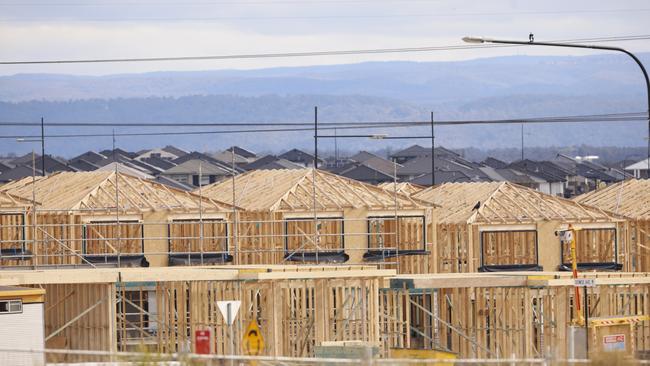Hopes high for quick economic rebound from Covid-19 lockdowns
There are still solid foundations for a rapid bounce back once restrictions are lifted, despite large chunks of the NSW and Victorian economies having now ground to a standstill.

Economists say there are still solid foundations for a rapid economic bounce back from the Covid-19 pandemic, despite large chunks of the NSW and Victorian economies having now ground to a standstill.
The cost of the recent wave of restrictions aimed at curtailing the spread of the more infectious Delta variant – including Greater Sydney’s five-week lockdown – could run as high as $10bn, or 2 per cent of national GDP.
Economists believe, however, that those losses will be made back swiftly in the weeks and months that follow the easing of restrictions – provided health measures can be lifted some time in August.
ANZ senior economist Catherine Birch has forecast employment in NSW could fall by as much as 60,000, and perhaps more, because of the recent decision to close Sydney construction sites and tighten rules around retailers – two sectors that employ one in six NSW workers.
Ms Birch remained confident the labour market would follow the precedent of previous lockdowns and “bounce back quickly over the following months”.
She said businesses would be keen to hold on to staff to avoid the costly delays of rehiring once restrictions were lifted, particularly given the reported difficulties employers are having finding labour, as reflected by a record high job vacancy rate.
The joint support recently announced by the commonwealth and state governments would also help maintain the employment relationship.
As at midnight on Sunday, the federal government had paid $155m in Covid disaster relief payments to support NSW workers affected by the restrictions, and received more than 331,000 claims, according to the Department of Social Services.
Of the claims granted, more than 269,000 were for people who had lost more than 20 hours of work in one week, although the DSS data did not specify how many of those claims were repeat applications.
Ms Birch said she still expected unemployment to fall to 4.4 per cent by the end of the year, after dropping to 4.9 per cent in May.
“We maintain our very positive longer-term outlook,” she said.
KPMG chief economist Brendan Rynne said “the best analogy here is that we are not getting a reversal in fortunes, just a pause in momentum”.
“I think this (Sydney) lockdown will be instructive in terms of understanding the resilience of the economy to handle these lockdowns,” Dr Rynne said.
University of Melbourne professor Jeff Borland also said it was “still feasible” that the jobless rate could hit the mid-4s by December, provided the Covid outbreaks did not extend materially beyond the current time frames.
Professor Borland said he couldn’t “see employment plummeting in July”, given Sydney was in a relatively light form of lockdown earlier this month when the ABS would have been conducting its labour force survey.
RBC Capital chief economist Su-Lin Ong said she now expected the economy to contract by 0.6 per cent in the September quarter – a major turnaround from the solid 0.9 per cent expansion she had tipped before the Covid Delta variant locked down half the population.
Ms Ong said Australia’s “experience with lockdowns over the past 18 months has been rapid recoveries when restrictions ease, with the bounce-back also stronger, underscoring a resilience that has been a feature of the economy since the pandemic began”.
That resilience may yet be tested, she cautioned, because authorities were dealing with a more infectious variant, and there was lower government support available for Covid-affected businesses and households than in 2020.
Judo Bank economic adviser Warren Hogan said Sydney’s restrictions might now be costing as much as $2bn a week in lost activity – or 20 per cent of NSW’s total weekly output – but he also told Sky News “the assessment now has to be that we bounce back”.




To join the conversation, please log in. Don't have an account? Register
Join the conversation, you are commenting as Logout